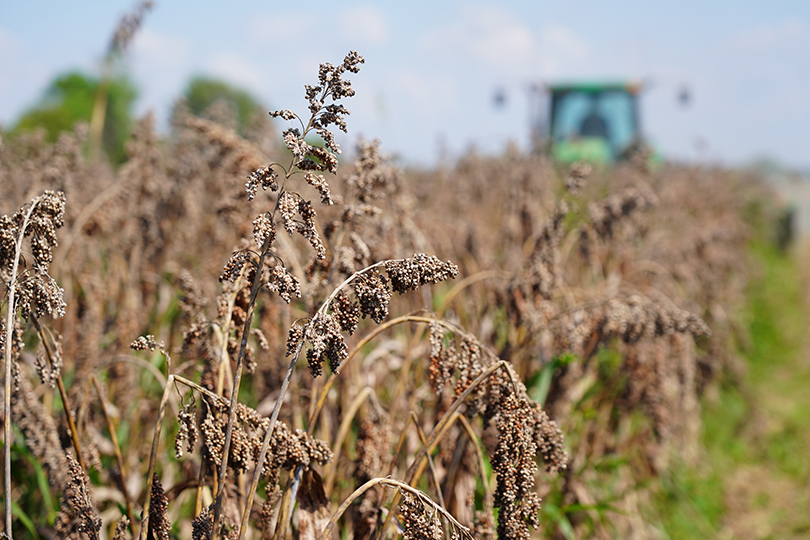By Julie Tomascik
Editor
Too much of a good thing? That summarizes this year’s summer rainfall for some South Texas farmers.
The year promised to be a good harvest for grain sorghum. But in mid-summer, things changed. The rain started falling in Wharton County, where Keith Bram farms his own ground and works for Popp Farms.
And it didn’t stop.
Many areas reported between 15 to 20 inches during July, but it wasn’t the amount of rain that was necessarily the problem. It was the crop staying wet for an extended period of time.
“The continuous rains, daily rains and keeping it wet as it went into nighttime—that’s probably the biggest problem is the daily rains we were getting just continuously keeping it damp and moist in the field,” Bram said.
Before the rain set in, the crop had high potential.
“Last year was a tremendous crop. I don’t think this was going to be quite as good, but it was very good. It was going to be a lot of about 7,000 pound milo, I think,” he said.
Unfortunately, the moisture degraded the crop. It caused the seed to sprout in the head, and it became moldy.
“No one wants the moldy sprout. The sprouted milo is one thing, but when it gets moldy, they definitely don’t want it,” he said.
With nowhere to take the crop, Bram and Popp Farms submitted a crop insurance claim.
“When they don’t want it, we have to get rid of it somehow,” Bram said. “We had crop insurance out to get the okay. We had to cut a sample, had to get three rejection letters from three different elevators saying that they would not accept that quality of milo, and so then we shred it and turn in the insurance claim.”
With the extra height and heads still on the stalk, Bram decided to shred the crop rather than plow it under.
This year’s weather has brought many challenges to Texas farmers.
“Rain is not always your best friend, but you sure hate to complain about the rain,” Bram said. “Timely rains are always the best. Untimely rains usually happen when harvest is beginning or when you’re trying to plant, or just planted and you get a flood causing problems like that. So, we try not to complain about the rain, because I know there’s a lot of parts of the state that don’t get very much.”

